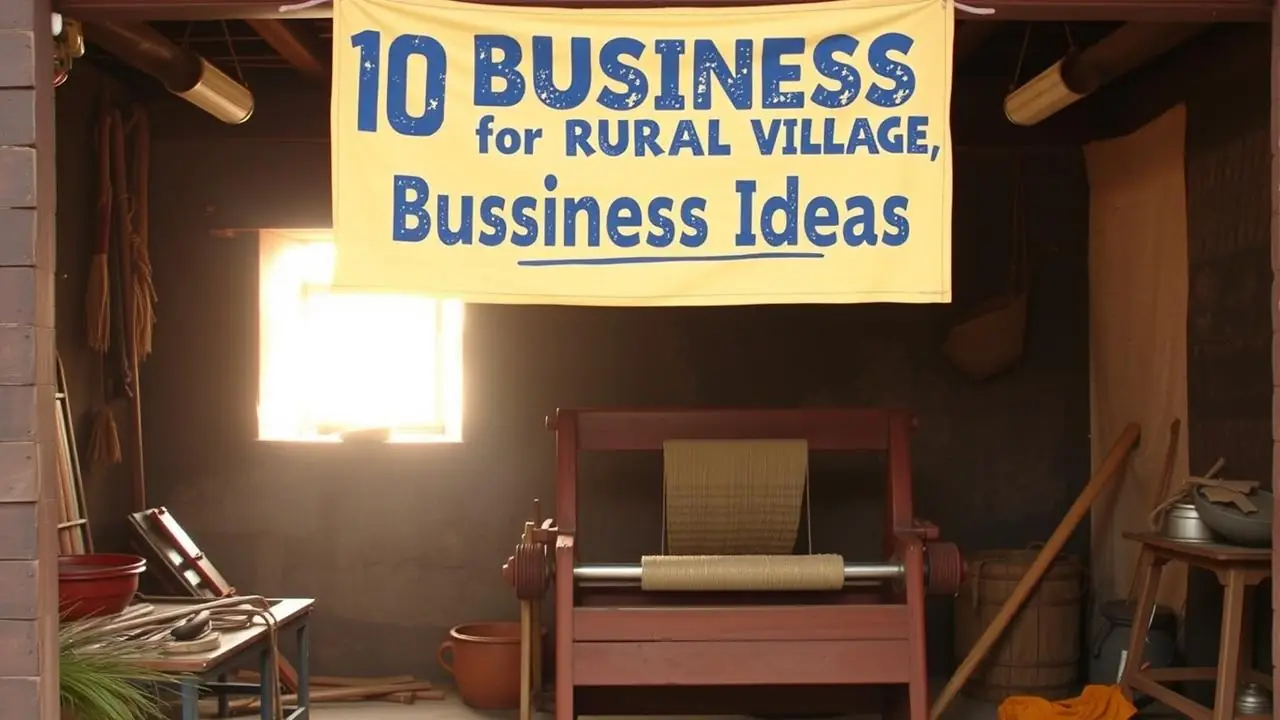Untapped business ideas in rural India are sparking a revolution, offering entrepreneurs a chance to turn small villages into thriving economic hubs. With India’s rural landscape brimming with potential, 2025 is the perfect time to tap into these opportunities. This article is your step-by-step guide to starting a new business in rural India, designed for aspiring entrepreneurs eager to make their mark in their village or small town. Whether you’re dreaming of financial independence or want to uplift your community, these rural business ideas are practical, profitable, and deeply rooted in local resources. Let’s be honest—rural India isn’t just about agriculture anymore; it’s a goldmine of innovation waiting to be explored.
Top 10 Untapped Business Ideas in Rural India
Top 10 Untapped Business Ideas in Rural India: The growing demand for sustainable, eco-friendly, and locally sourced products has shifted the spotlight to rural areas. Urban consumers are hungry for authenticity, and rural entrepreneurs can deliver just that. From organic farming to modernized kirana stores, this guide covers 10 untapped business ideas that leverage local strengths while meeting market needs. Each idea is broken down with actionable steps, so you can hit the ground running. By the end, you’ll have a clear roadmap to launch a profitable rural business that’s built to last. Here’s what we’ll cover:
- Organic Farming & Value-Added Products for health-conscious urban markets
- Dairy Farming and Processing to meet rising dairy demand
- Jute Bag Manufacturing for eco-friendly consumers
- Small-Scale Manufacturing using local resources
- Digital Marketing Services to boost local businesses
- Modern Kirana Stores with online delivery
- Eco-Friendly Packaging Solutions for sustainability
- Vermicomposting for organic fertilizers
- Oil Mills for local crops
- Tutor Services to empower education
Ready to dive into these untapped business opportunities in rural India? Let’s get started!
1. Organic Farming & Value-Added Products
The craze for organic farming is more than a trend—it’s a lifestyle shift. Urban consumers are willing to pay a premium for pesticide-free produce, and rural India is perfectly positioned to meet this demand. Starting an organic farming business means cultivating fruits, vegetables, or grains without synthetic chemicals. But here’s the kicker: you can double your profits by creating value-added products like jams, pickles, or even organic cheese. Trust me, these products fly off the shelves in cities like Mumbai and Delhi.
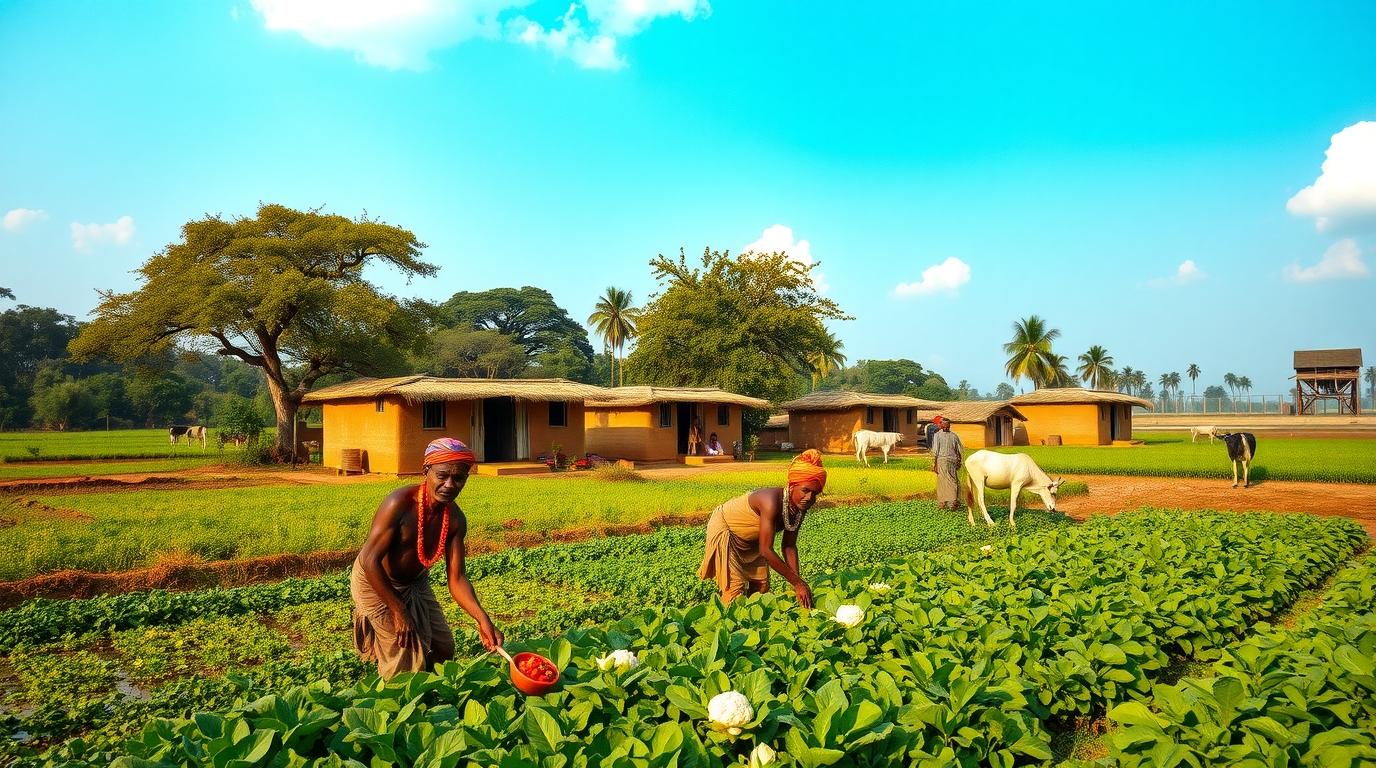
To get started, identify fertile land—your own or leased—and focus on high-demand crops like tomatoes, spinach, or millets. Certification is key; apply for organic certification through agencies like APEDA to build trust. Invest in natural fertilizers and pest control methods, like neem oil. For value-added products, set up a small processing unit. For example, turning surplus mangoes into jam requires basic equipment like a pulper and sealing machine. Package them in eco-friendly jars, and you’re ready to tap into urban markets through e-commerce platforms or local cooperatives.
Also Read
How to Start an Invitation Card Printing Business in India: A Step-by-Step Guide?
How to start organic farming business in India - Complete Guide
How to Start a Bottled Water Business in India: A Comprehensive Guide
The emotional payoff is huge. Imagine the pride of seeing your organic mango pickle on a supermarket shelf, knowing it came from your village! Costs can be a hurdle—certification and equipment aren’t cheap—but government schemes like the Paramparagat Krishi Vikas Yojana offer subsidies. Start small, maybe with a single crop, and scale as profits roll in. This rural business idea is a win-win: good for your wallet and the planet.
- Market Research: Study urban demand for organic products. Check platforms like BigBasket to see what sells. This ensures you grow what people want, maximizing profits.
- Skill Development: Attend workshops on organic farming techniques. Local agricultural universities often host free sessions, equipping you with the know-how.
- Branding: Create a catchy brand name and story. A label like “VillageFresh” resonates with consumers, making your products stand out.
2. Dairy Farming and Processing
Dairy farming is a cornerstone of rural India, but it’s time to think bigger. With milk consumption soaring—India’s dairy market is projected to hit ₹30 lakh crore by 2027—starting a dairy farming and processing business is a no-brainer. You don’t need a massive herd; even 10 cows can kick things off. Add a small processing unit for products like ghee, yogurt, or paneer, and you’re serving both local and urban markets.
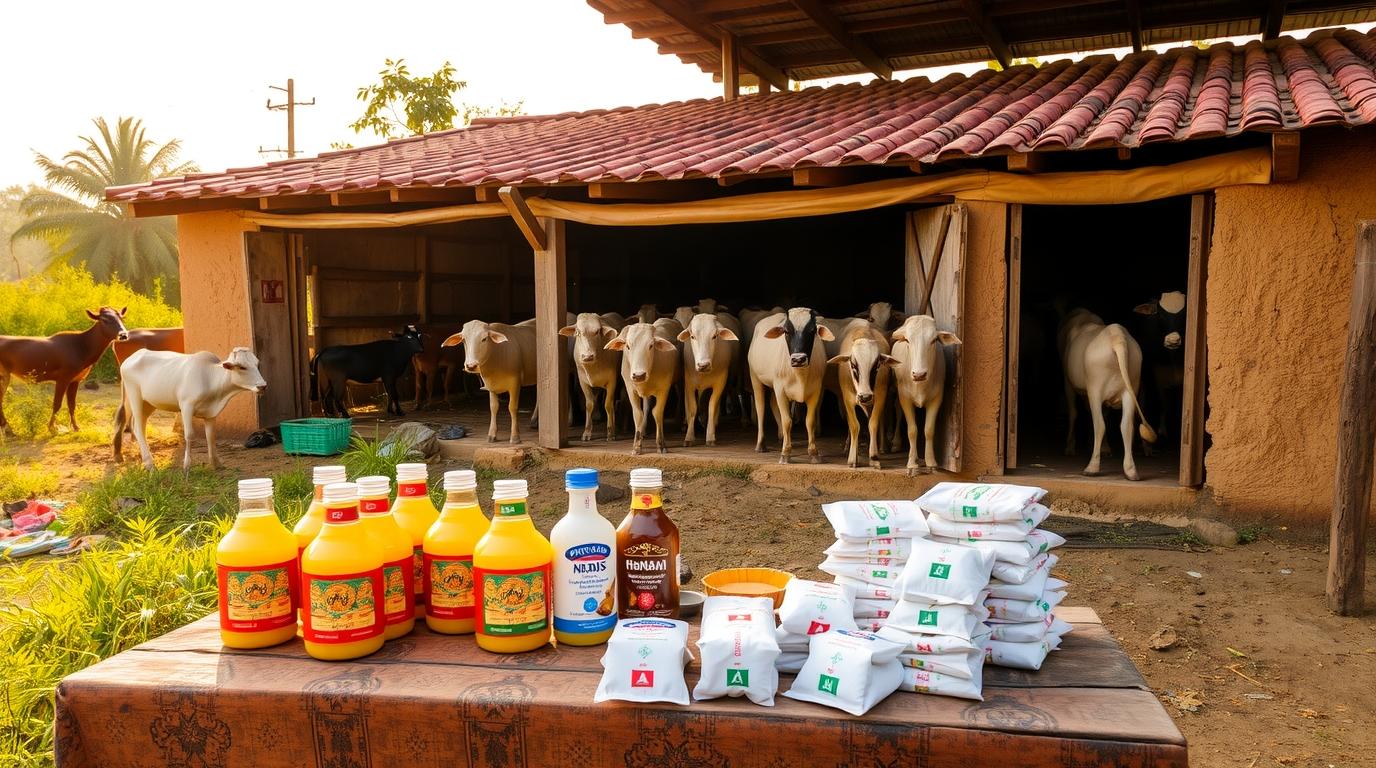
Begin with a small shed, quality cattle (like Gir or Sahiwal), and a reliable feed supply. Hygiene is non-negotiable; invest in milking machines to ensure clean milk. For processing, a basic setup for pasteurizing and packaging can cost ₹5-10 lakh, but loans from NABARD can ease the burden. Sell milk locally and value-added products like flavored yogurt to urban cafes. Cooperatives like Amul can also buy your milk, ensuring steady income.
There’s something deeply satisfying about watching a calf grow into a milk-producing cow. But let’s be honest, it’s hard work—cows don’t take holidays. Disease management and feed costs are challenges, but veterinary support and fodder cultivation can keep things in check. This rural business opportunity thrives on consistency and quality, so focus on building a reputation for fresh, pure dairy.
- Training: Enroll in dairy management courses offered by NDDB. They cover everything from cattle care to processing, setting you up for success.
- Distribution Network: Partner with local shops or cafes for direct sales. For urban markets, use cold-chain logistics to deliver fresh products.
- Sustainability: Use cow dung for biogas or manure, reducing waste and adding a side income stream. It’s eco-friendly and profitable.
3. Jute Bag Manufacturing
Jute bag manufacturing is a golden ticket for eco-conscious entrepreneurs. With plastic bans tightening, jute—a biodegradable, locally grown fiber—is in high demand. From trendy tote bags to sturdy sacks, jute products are a hit with urban shoppers and businesses alike. Rural India, with its proximity to jute fields, is the perfect place to start this sustainable business.

You’ll need a small workshop, basic stitching machines, and raw jute from local farmers. A setup for 5-10 workers can cost ₹3-5 lakh, but MSME loans can help. Design simple yet stylish bags—think reusable grocery totes or laptop bags—and market them to eco-friendly brands or online platforms. Quality matters; ensure strong stitching and durable designs. You can even customize bags for weddings or corporate gifting, boosting margins.
Picture a local artisan proudly stitching a jute bag that ends up in a Bengaluru boutique. It’s not just business—it’s a statement. The challenge? Competition from established players. Stand out with unique designs and storytelling—highlight your village roots. This untapped business idea in rural India aligns profit with purpose, making it a fulfilling venture.
- Raw Material Sourcing: Connect with jute farmers or cooperatives for a steady supply. Buying locally cuts costs and supports the community.
- Marketing: Use social media to showcase your bags. A quick Instagram reel of your workshop can attract eco-conscious buyers.
- Diversification: Experiment with jute mats or baskets to expand your product line, catering to different customer needs.
4. Small-Scale Manufacturing
Small-scale manufacturing is like the Swiss Army knife of rural business ideas—versatile and practical. Think incense sticks, candles, paper plates, or disposable bags. These products are low-cost to produce, use local resources, and have steady demand. In rural India, where labor and raw materials are abundant, this business opportunity is a surefire way to generate profits.
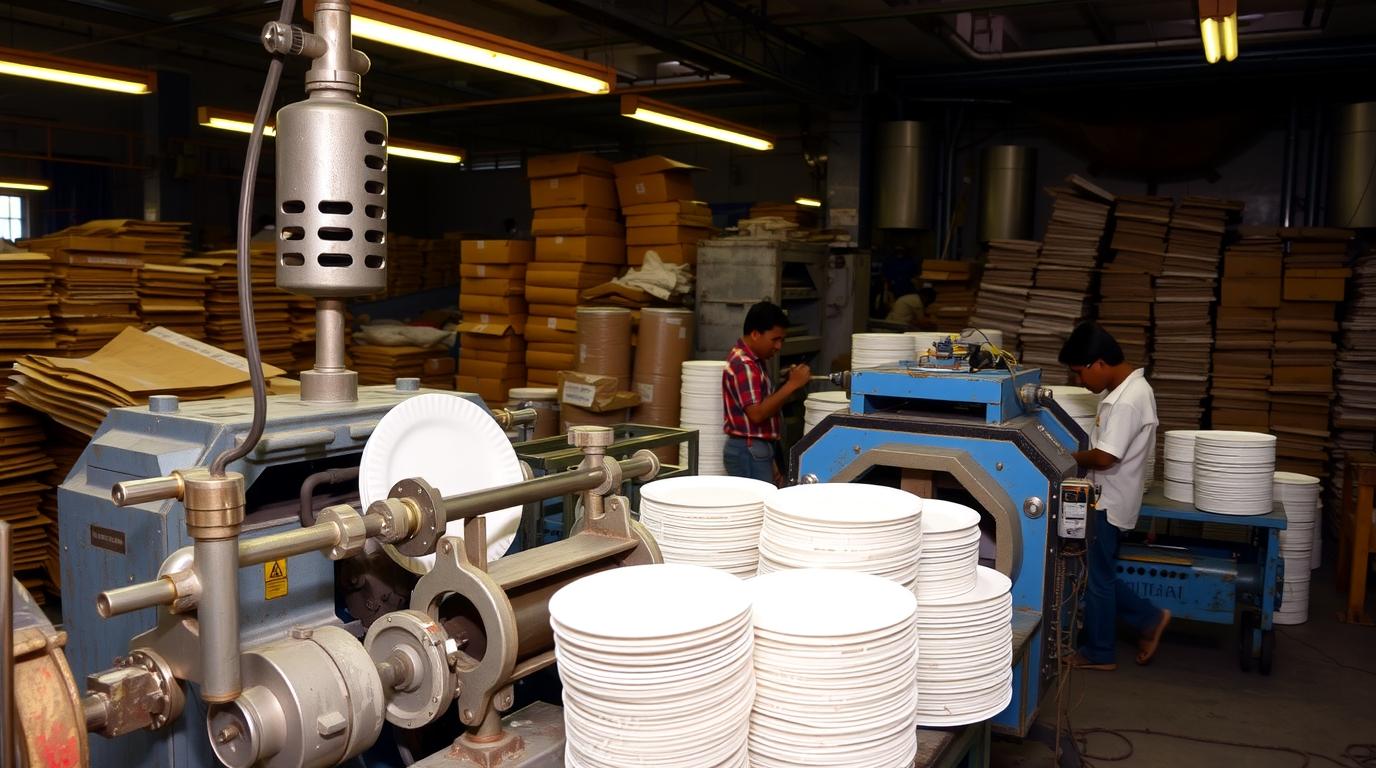
Start with a product that matches local skills and resources. For incense sticks, you’ll need bamboo, charcoal, and essential oils. A small unit with 5 workers can produce thousands of sticks daily, costing ₹2-3 lakh to set up. Paper plates require a die-cutting machine and pulp, with similar investment. Sell to local shops, temples, or event planners. Scaling up? Supply to nearby cities through wholesalers.
There’s a quiet joy in seeing a stack of your candles light up a village festival. But competition and fluctuating raw material prices can sting. Stay lean by sourcing locally and keeping overheads low. This rural entrepreneurship idea is all about starting small and dreaming big, with endless room to grow.
- Product Selection: Choose products with consistent demand, like agarbatti for religious ceremonies. Research local festivals to gauge needs.
- Quality Control: Invest in basic training for workers to ensure uniform products. Consistency builds trust with buyers.
- Packaging: Use simple, eco-friendly packaging to appeal to modern consumers while keeping costs down.
5. Digital Marketing Services for Local Businesses
In today’s digital age, digital marketing services are a game-changer for rural entrepreneurs. Local businesses—think kirana stores, tailors, or even farmers—often lack the skills to go online. That’s where you come in, offering SEO, social media management, or email marketing to help them reach wider audiences. This rural business idea requires minimal investment and taps into a growing need.

You’ll need a laptop, internet, and basic digital marketing skills—plenty of free courses on YouTube can get you started. Offer services like creating Google My Business profiles, running Instagram ads, or optimizing websites. Charge monthly retainers (₹5,000-10,000 per client) and serve 5-10 local businesses to start. As you grow, target nearby towns or urban clients.
Helping a local baker get their first online order feels like hitting a home run. The catch? You’ll need to stay updated on digital trends, which means constant learning. But with low startup costs and high demand, this untapped business opportunity in rural India is a smart bet for tech-savvy entrepreneurs.
- Skill Building: Master one service, like Instagram marketing, before diversifying. Platforms like Coursera offer affordable courses.
- Client Outreach: Start with businesses you know—your neighbor’s shop, for example. Word-of-mouth referrals will fuel growth.
- Tools: Use free tools like Canva for graphics or Google Analytics for insights to keep costs low while delivering results.
6. Kirana Store with a Modern Touch
The humble kirana store is the heartbeat of rural India, but it’s ready for a makeover. A modern kirana store with online ordering, home delivery, and eco-friendly products can outshine traditional shops. This rural business idea blends tradition with technology, catering to both local customers and urban migrants craving village authenticity.
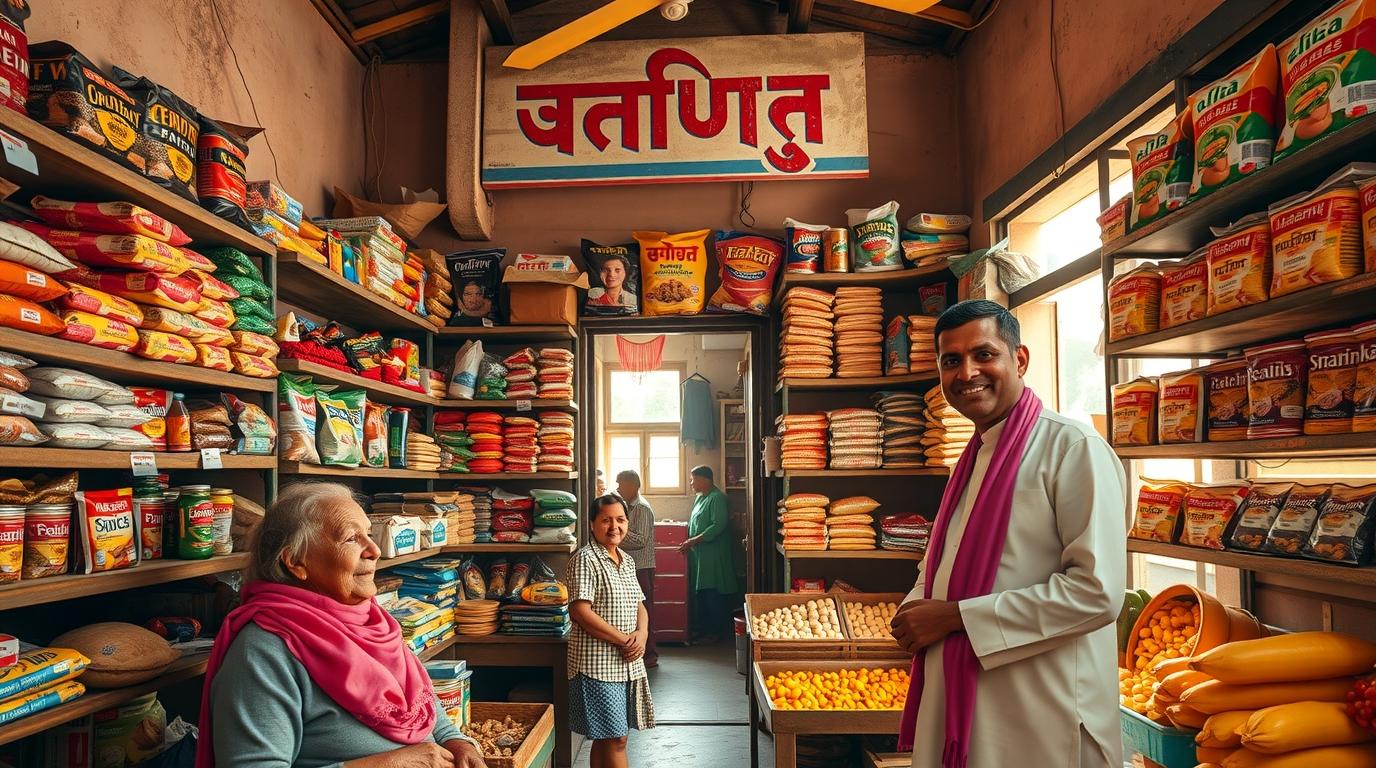
Set up a small shop with essentials—grains, spices, snacks—plus unique offerings like organic honey or handmade soaps. Invest in a basic website or WhatsApp Business for online orders (₹10,000-20,000 setup cost). Offer delivery within a 5-km radius using a bicycle or scooter. Stock locally sourced products to attract eco-conscious buyers. Promote through flyers or social media.
Running a kirana store feels like being the glue of your community. But competition from e-commerce giants is real. Stand out with personalized service and local charm. This untapped business idea in rural India is about reimagining a classic for the digital age.
- Inventory Management: Use simple apps like Tally to track stock and avoid overstocking, keeping your cash flow healthy.
- Customer Loyalty: Offer discounts or free delivery for regular customers to build a loyal base and boost word-of-mouth.
- Eco-Friendly Focus: Stock reusable bags or organic products to appeal to younger, environmentally aware shoppers.
7. Eco-Friendly Packaging Solutions
With sustainability in the spotlight, eco-friendly packaging solutions are a hot rural business opportunity. Businesses are ditching plastic for jute, paper, or biodegradable plastics, and rural India can lead the charge. This business idea leverages local materials to create packaging for food, retail, or e-commerce.

Start with a small unit producing paper bags or jute pouches. Equipment like a paper bag machine costs ₹5-7 lakh, but government grants for green businesses can help. Source materials like bagasse or recycled paper locally. Sell to nearby shops, restaurants, or online brands. Customize for events like weddings to boost profits. Quality and durability are critical—nobody wants a bag that tears mid-use.
There’s a thrill in knowing your packaging helps reduce plastic waste. Scaling up requires consistent supply chains, which can be tricky in rural areas. Build strong supplier relationships to stay ahead. This untapped business idea in rural India is perfect for environmentally conscious entrepreneurs.
- Material Sourcing: Partner with local farmers for jute or sugarcane waste. It’s cost-effective and supports the community.
- Branding: Highlight your eco-friendly mission in marketing. A tagline like “Green Today, Thriving Tomorrow” resonates.
- Product Variety: Offer sizes and designs for different industries, from food to fashion, to broaden your customer base.
8. Vermicomposting for Organic Fertilizers
Vermicomposting is a hidden gem among rural business ideas. Using worms to turn organic waste into nutrient-rich fertilizer, this sustainable business meets the growing demand for organic fertilizers. With farmers shifting to chemical-free agriculture, your product will be in high demand.
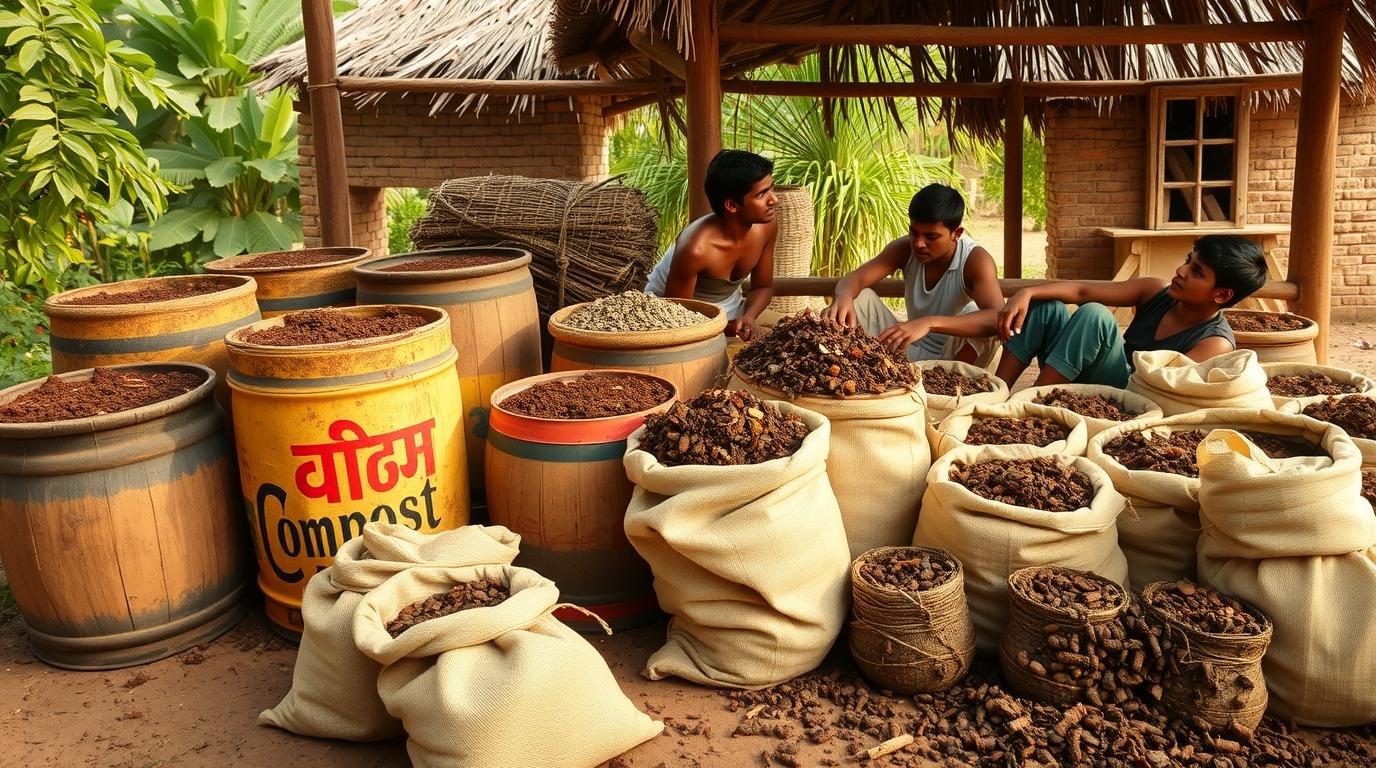
Set up a shaded vermicomposting pit with earthworms, cow dung, and organic waste like vegetable peels. A 10x10-foot pit costs ₹20,000-30,000 to start. Maintain moisture and temperature, and in 60-90 days, you’ll have fertilizer ready to sell. Package in 5-kg or 10-kg bags and market to local farmers or urban gardeners. You can also sell worms to other vermicomposters for extra income.
Watching worms turn waste into “black gold” is oddly satisfying. The challenge is educating farmers about organic benefits, as some still rely on chemicals. Host demos to build trust. This untapped business opportunity in rural India is low-cost and high-impact, perfect for eco-entrepreneurs.
- Training: Learn vermicomposting basics from Krishi Vigyan Kendras. Their free workshops ensure you start on the right foot.
- Marketing: Use WhatsApp groups to reach farmers directly. Share success stories to build credibility and drive sales.
- Byproducts: Sell worm tea (liquid fertilizer) as a premium product for home gardeners, adding a lucrative revenue stream.
9. Oil Mills
Oil mills are a timeless rural business idea, turning locally grown crops like mustard, soybean, or groundnut into edible oils. With households and restaurants needing pure, unadulterated oils, this business opportunity is both profitable and community-driven. Rural India’s agricultural backbone makes it an ideal location.
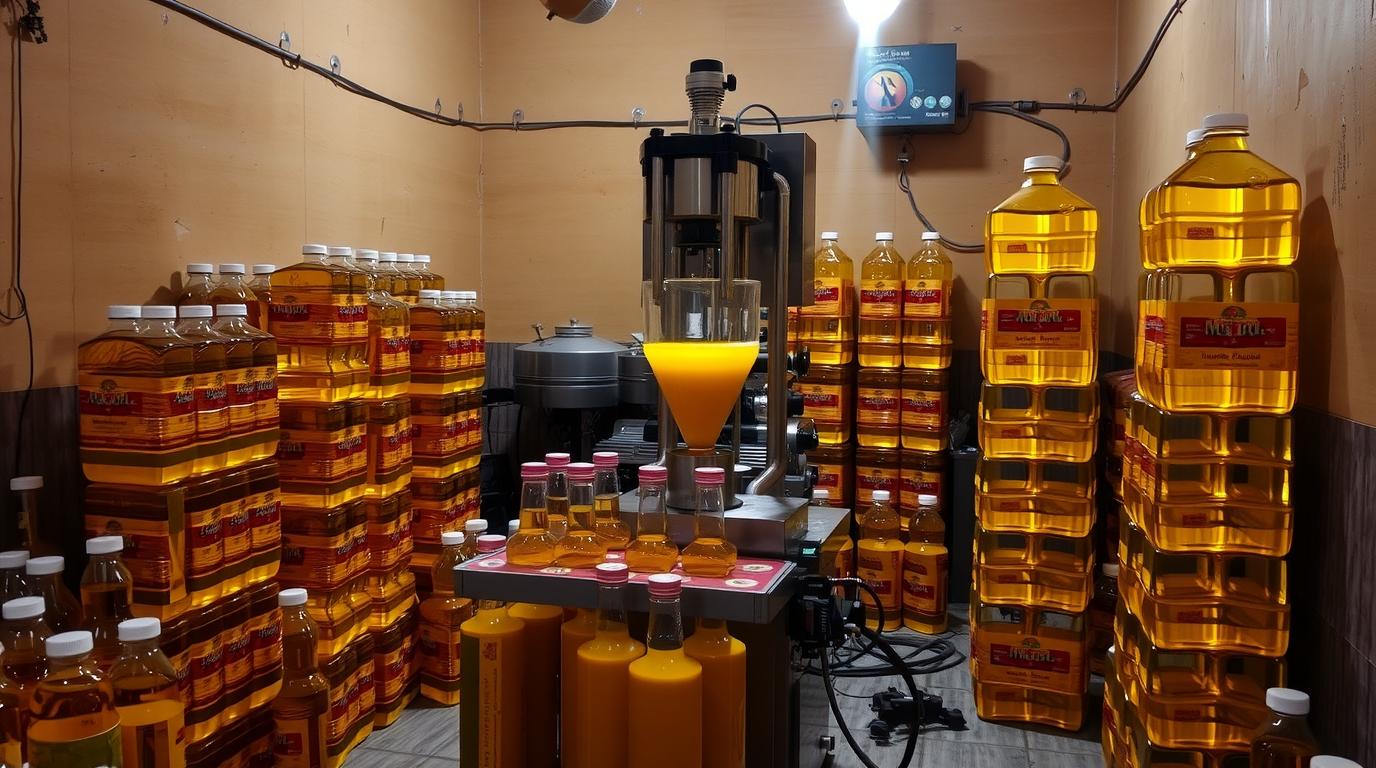
Invest in a mini oil expeller (₹2-5 lakh) and a small shed. Source seeds from local farmers to keep costs low. Process and filter the oil, then package in bottles or cans. Sell to local shops, households, or nearby eateries. For extra income, sell oil cakes (a byproduct) as cattle feed. Ensure hygiene and quality to build a loyal customer base.
There’s a nostalgic charm in producing oil that fuels village kitchens. Price fluctuations in raw materials can be a headache, so lock in supplier contracts. This untapped business idea in rural India thrives on trust and tradition, with room for modern branding.
- Quality Assurance: Test oil for purity and label it clearly. Transparency builds trust and sets you apart from competitors.
- Distribution: Supply to local dhabas or small restaurants for bulk orders, ensuring steady cash flow.
- Branding: Use regional names like “Desi Mustard Oil” to evoke authenticity and attract traditional buyers.
10. Tutor Services
Education is the key to progress, and tutor services are a powerful rural business idea. With parents eager to give their kids a leg up, offering tutoring in subjects like math, science, or English can fill a critical gap. This business opportunity leverages local talent to empower the next generation.
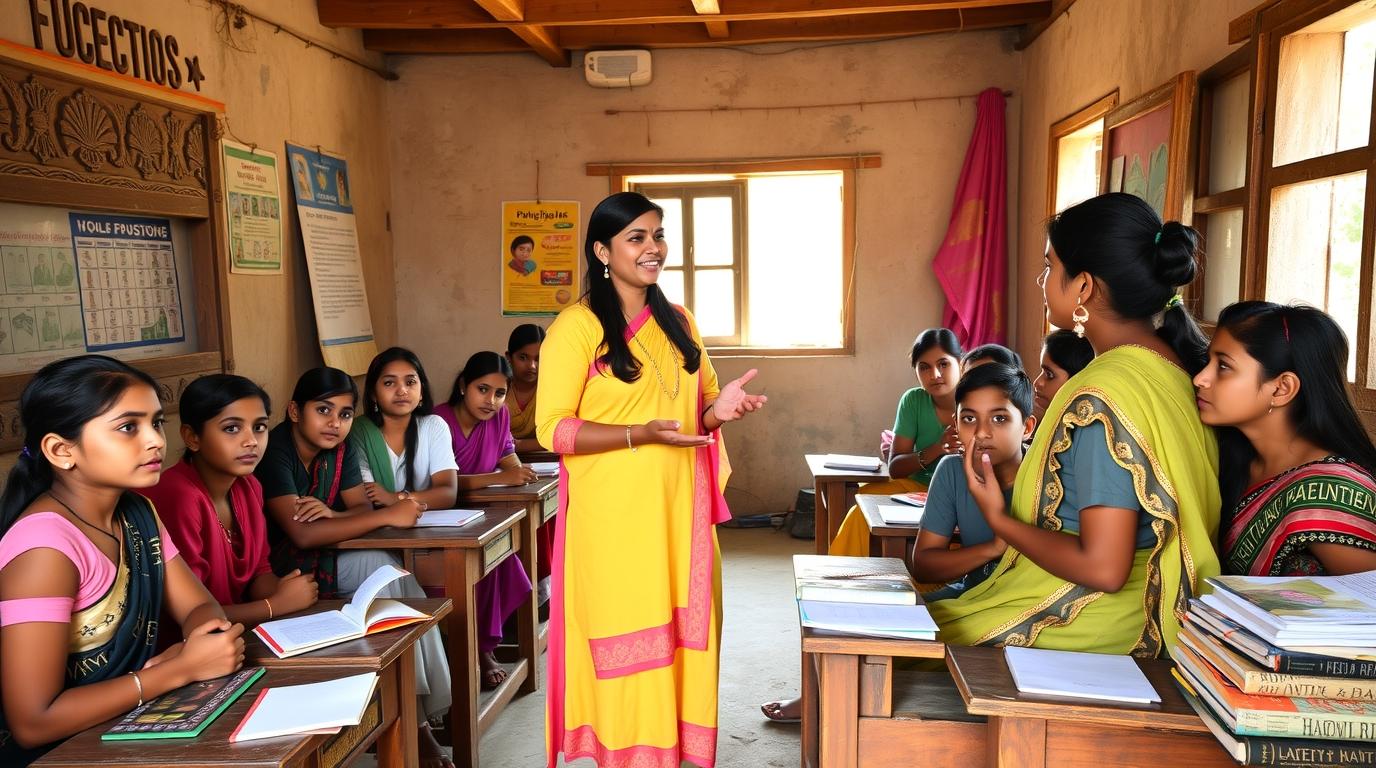
Start by identifying your expertise or hiring local graduates. Set up a small classroom or use your home, keeping costs under ₹50,000. Offer group classes (₹200-500 per student monthly) or one-on-one sessions for higher fees. Focus on school syllabi and exam prep to attract students. Promote through community events or WhatsApp groups.
Teaching a child to solve their first algebra problem is pure magic. The challenge? Irregular student attendance. Build trust with parents through regular updates and results. This untapped business opportunity in rural India is about more than profit—it’s about shaping futures.
- Curriculum Planning: Align lessons with CBSE or state board syllabi to ensure relevance and attract more students.
- Engagement: Use interactive methods like quizzes or visual aids to keep students hooked and improve learning outcomes.
- Expansion: Offer online classes via Zoom to reach students in nearby villages, scaling your impact and income.
Frequently Asked Questions About Untapped Business Ideas in Rural India
What are the best untapped business ideas in rural India for 2025?
The best untapped business ideas for rural India in 2025 include organic farming, dairy processing, jute bag manufacturing, small-scale manufacturing, digital marketing services, modern kirana stores, eco-friendly packaging, vermicomposting, oil mills, and tutor services. These leverage local resources and meet growing urban demand for sustainable products.
How much capital is needed to start an organic farming business?
Starting an organic farming business can cost ₹1-5 lakh, depending on land size, crops, and certification. Leasing land and using government subsidies, like those from Paramparagat Krishi Vikas Yojana, can lower costs. Value-added products like jams may require additional ₹2-3 lakh for processing equipment.
Is dairy farming profitable in rural India?
Yes, dairy farming is highly profitable, with India’s dairy market growing rapidly. A small farm with 10 cows can generate ₹50,000-₹1 lakh monthly, especially if you process milk into ghee or yogurt. NABARD loans and cooperatives like Amul ensure steady income.
Why should I consider jute bag manufacturing?
Jute bag manufacturing is eco-friendly and aligns with plastic bans. Jute is locally available, and startup costs are low (₹3-5 lakh). High demand from urban retailers and e-commerce brands makes it a sustainable and profitable venture for rural entrepreneurs.
What products can I make in a small-scale manufacturing business?
You can produce incense sticks, candles, paper plates, or disposable bags. These require minimal investment (₹2-3 lakh) and use local resources. They have steady demand in local markets, temples, and event planning, ensuring consistent profits.
Can I start a digital marketing business with no experience?
Yes, you can start with no experience by learning through free online courses on YouTube or Coursera. Focus on one service, like social media management, and practice with local businesses. A laptop and internet are enough to begin, with costs under ₹50,000.
How can a kirana store stand out in rural India?
A modern kirana store can stand out by offering online ordering via WhatsApp, home delivery, and eco-friendly products like organic spices or reusable bags. Personalised service and stocking local goods attract both village and urban customers.
What materials are used in eco-friendly packaging?
Eco-friendly packaging uses jute, recycled paper, bagasse, or biodegradable plastics. These are sustainable and locally sourced in rural India, reducing costs. They cater to businesses like restaurants and e-commerce, driven by demand for green solutions.
How does vermicomposting work as a business?
Vermicomposting uses earthworms to convert organic waste into fertilizer. A small setup (₹20,000-30,000) produces organic fertilizer in 60-90 days, sold to farmers or gardeners. It’s low-cost, eco-friendly, and meets the rising demand for sustainable agriculture.
Are oil mills a good investment in rural India?
Oil mills are a solid investment, processing local crops like mustard or soybean into edible oils. A mini expeller costs ₹2-5 lakh, and oils sell to households and eateries. Byproducts like oil cakes add income, making it a profitable rural venture.
Who can start a tutor service in rural India?
Anyone with expertise in subjects like math, science, or English, or access to local graduates, can start a tutor service. A small classroom setup costs under ₹50,000. It’s ideal for empowering rural students and generating steady income through group or private classes.
What government schemes support rural businesses?
Schemes like Paramparagat Krishi Vikas Yojana (organic farming), NABARD loans (dairy and oil mills), and MSME grants (manufacturing) support rural businesses. They offer subsidies, low-interest loans, and training, making it easier to start and scale your venture.
How can I market my rural business to urban customers?
Use e-commerce platforms, social media like Instagram, or WhatsApp for urban outreach. Highlight your rural authenticity and eco-friendly products. Partner with urban cafes, cooperatives, or online marketplaces to sell organic goods, jute bags, or dairy products effectively.
Conclusion
Untapped business ideas in rural India are your ticket to financial freedom and community impact in 2025. From organic farming to tutor services, these rural business opportunities leverage local resources, meet modern demands, and promise solid profits. Each idea is a stepping stone to transforming your village into an economic powerhouse. The beauty? You don’t need a big budget or fancy degree—just grit, creativity, and a willingness to start small.
Pick one rural entrepreneurship idea that sparks your passion, and take the first step today. Research your market, tap into government schemes, and build a brand that resonates. Whether it’s a jute bag in an urban boutique or a tutoring class changing a child’s life, your new business in rural India can make waves. So, what’re you waiting for? The future of rural India is in your hands—go make it happen!
